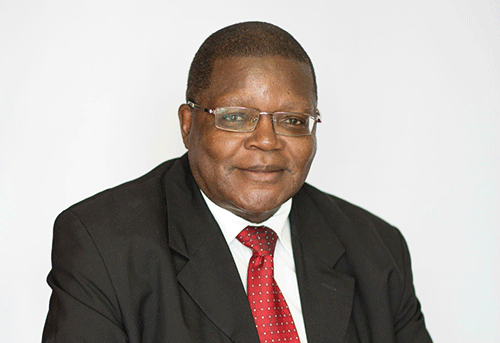Prof. Jairos Kangira
Last weekend, hordes of members of the Zimbabwe African National Union Patriotic Front (Zanu PF) Namibia district, who live and work in Namibia, celebrated the victory of their party candidate, his Excellency President Emmerson Dambudzo Mnangagwa, and their party, in the 23rd and 24th August 2023 harmonised elections in Zimbabwe.
The celebrations, which were held at Xwama Restaurant in Katutura, Windhoek, were graced by the attendance of the Zimbabwe ambassador to Namibia, Melody Chaurura, and Namibia’s minister of Industrialisation, Trade and Industry Lucia Iipumbu, representing Swapo Party.
While this election has
attracted many controversies, especially from Zimbabwe’s detractors and prophets of doom, I put the thesis that president Mnangagwa’s victory and the victory of Zanu PF is against counter-revolutionaries and their surrogates or proxies. This victory means a lot to the people of Zimbabwe. This is a victory against imperialism, the monopoly stage of capitalism.
This is a victory against imperialism, the mother of fascism. It is a victory against neo-colonialism, which the former coloniser wants to use to control and influence an independent country.
On neocolonialism, Pan-Africanist Kwame Nkurumah, rightly argued that: “More often, however, neo-colonialist control is exercised economically. The neo-colonial State may be obliged to take the manufactured products of the imperialist power to the exclusion of competing products from elsewhere. Control over government policy in the neo-colonial State may be secured by payments towards the cost of running the State, through civil servants who can dictate policy and monetary control over foreign exchange through the imposition of a banking system controlled by the imperial power”. To all intents and purposes, the Zanu PF victory is against the regime change agenda of the Western countries and their allies, a victory over Western countries’ supremacist and chauvinistic policies on Zimbabwe and Africa. Other liberation movements like Swapo of Namibia, ANC of South Africa, FRELIMO of Mozambique and MPLA of Angola should always be wary about the relentless machinations of the Western countries and their allies wanting to maintain grip on sovereign states using proxy agents fronted by some local opposition parties and pseudo civic groups.
Zanu PF has been battling this debilitating phenomenon since the mid-1990s, which worsened after the country’s successful land reform programme that empowered the land-dispossessed black people. It is now common knowledge that Zanu PF won most National Assembly seats, senatorial seats, Women’s quota, Youth Quota and Local Authorities.
This victory gives Zanu PF the mandate to govern the country until the next elections in 2028.
President Mnangagwa has already put government in place. Cabinet ministers and provincial ministers of State were sworn in, and they have started their work in earnest. What I observed throughout the elections is that Zanu PF’s victory did not come on a silver platter. The party was highly organised from start to finish. The united approach it adopted throughout the elections paid dividends. Preparations for the campaign began in 2021 when Zanu PF embarked on restructuring all principal organs from Cells up to the Central Committee.
This was followed by the
People’s Congress in 2022, where the party exhibited great united unity in electing president Mnangagwa as the only candidate for the presidential candidate. Next came primary elections to choose the rest of the candidates for parliament and local authorities.
As I followed the developments with keen interest, I saw that the party exercised democracy and transparency, as all candidates were subjected to election. All the party structures synchronised their work and produced a resounding election victory.
Also, the diaspora districts played a critical role in building awareness and support for the party in their respective host countries. Party members were active on social media, campaigning for the party.
Some districts helped in fundraising for the elections. Some members from SADC countries had registered to vote and travelled from South Africa, Namibia, Malawi and Mozambique to Zimbabwe and voted.
The world should know that Zanu PF has never been afraid of elections. Its government has, therefore, religiously held general elections every five years in compliance with the dictates of the national constitution.
Nyika inovakwa nevene vayo. Ilizwe lakhiwa labanikhazi balo.
Brick by brick! Stone by stone! Step by step.
* Prof. Jairos Kangira is a professor of English at the University of Namibia. He can be reached at kjairos@gmail.com.


